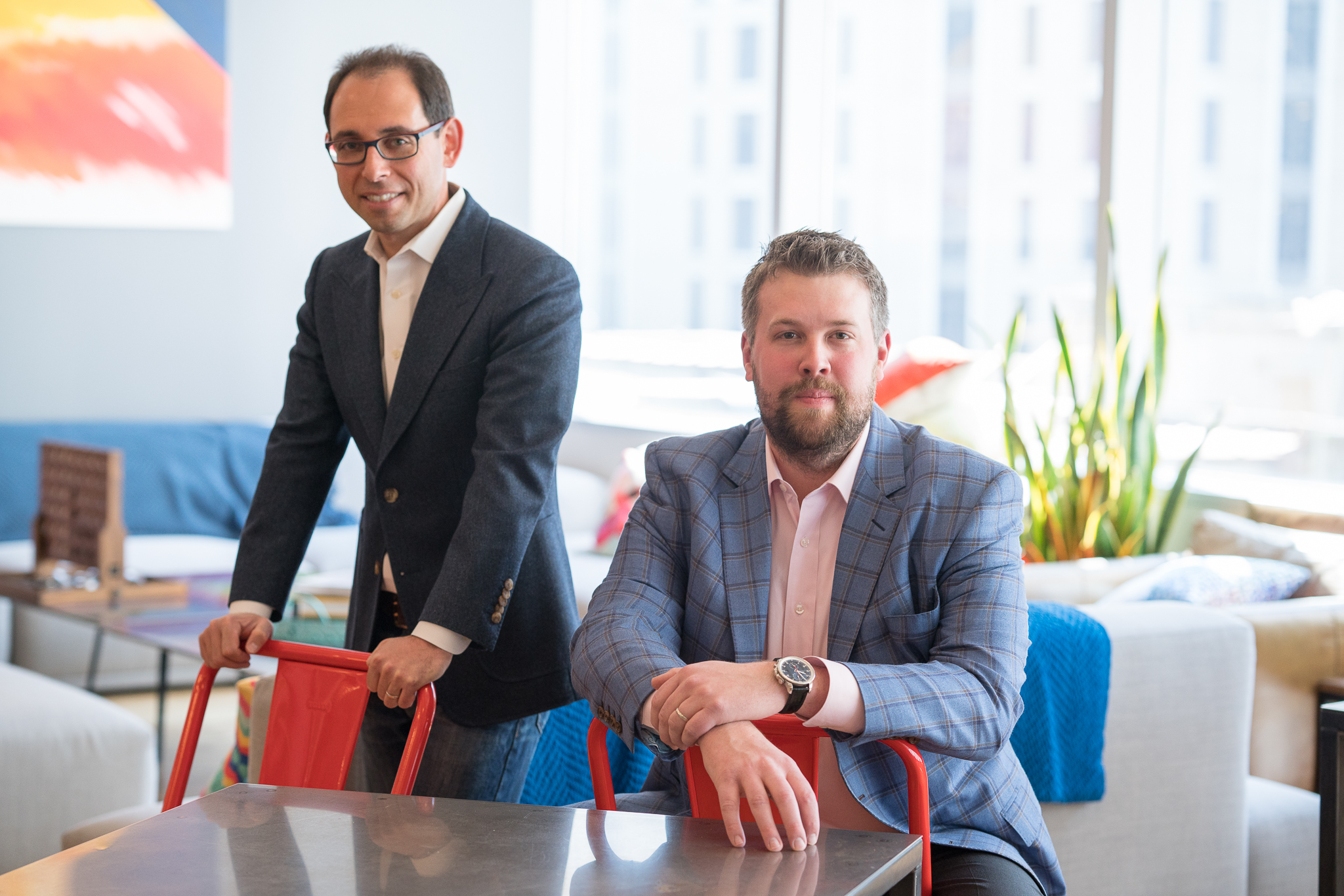The growth: Good things happen to people who know what problem they’re solving
We made a classic entrepreneurial mistake early on.
We had this big, robust, hammer that could solve any problem that came its way. We spent a lot of time creating solutions for problems *we thought* companies had. It was a backward approach. And, well, you can guess how that turned out - we could not scale.
We were stuck at being a 12-person company, so something needed to change. Thankfully, the quality of our work was never an issue.
We did several things to shift out of a boutique agency to a well-known firm in our space.
We expanded our service offerings (and shifted our focus). We realized we needed a better business strategy. The roadblock for future growth was just being firefighters. We decided to focus on fire prevention rather than dealing with it after the fact.
We developed formal partnerships with Amazon Web Services, Google Cloud and Microsoft Azure. The future is the cloud. We are still in the early years of the cloud, and it will fuel innovation for decades to come. We invested heavily in cloud training and became official partners of AWS, GCP & Microsoft Azure. We recognized this as we invested more time learning from our current customers and potential customers.
We moved from hiring contractors to full-time employees. When we first started, we would hire contractors to work on projects. But as we grew, we knew we wanted to be bigger than just a pure “make money on margins” business. We found that we could build a better culture and a shared set of values. This has paid off significantly for us. Many of our service offerings, and platforms we’re building, are due to the dedication and passion of our employees.
We focused on experienced hires only. There are some business models where hiring junior people early on and training them works great. Our business is not one of them. We don’t get a second chance to make the right impression. Bigger companies can go in with experienced people and then switch out to more junior people—we can't do that, nor do we want to.
We rebranded to Prime TSR and started a bigger marketing effort. The Silent IT name ran its course, and as part of our service offering shift, we thought a new name and website was worthy. Interestingly enough, rebranding is way more involved than I thought it would be. I learned a lot of things along the way, and I’m happy to see where we ended up with our site. We also built a stronger marketing and PR strategy to support and amplify our branding and growth efforts.
We won several awards:
We upgraded our office. We began at a WeWork shared office space and quickly outgrew it. One of our customers, Narrative Science, who continues to grow every day, has a beautiful office on 1 North Dearborn Street in Chicago. We approached them about subleasing a big part of their office, and that’s where we are today. Of course, this was all before Covid-19 happened.· Nothing replaces a warm handshake, but we might be even more productive now because we're not spending as much time in meetings.
We are thriving during Covid-19 because of decisions we made years earlier
The day the stock market dropped 400 points, I knew things were going to be much different than anyone expected. I, like everyone else, was concerned about the impact on our business and our clients’ businesses.
And even prior to the pandemic, we realized that having a financial cushion is important to the growth of the business. So during the early stages, we focused on getting that financial cushion in case we began losing clients.
Fortunately for us, the pandemic didn’t cause any strain on our business. If anything, it could have had a positive short and long-term impact on scaling our business.
Here’s what we learned during this time:
We chose the right industries. We are extremely fortunate that most of our clients fall in the healthcare and financial services industries, which are both doing well right now. It’s confirmation that some of our instincts on choosing industries to tackle were right.
We solve big problems that don’t change often. One of my favorite quotes is from Jeff Bezos when he said that people should focus on problems that aren’t going to change in the next 10-20 years. We took this advice to heart and knew that cloud technologies would be the foundation of companies moving toward more agile, digital approaches to business. By focusing on cloud technologies, we were naturally able to offer these services to clients who needed to move their organizations to remote-only and modernize their infrastructures to move quicker. The need for our services didn’t change, it just accelerated the number of companies that needed to invest in digital transformation and technology modernization.
We found the right partners and continue building trust and credibility with them. By being accredited partners with AWS and GCP, we built a direct channel for client referrals from these partners. I imagine these will be great long-term strategic partners for us, and a big part of our marketing effort is ensuring they understand our value proposition and our skillset.
Our entrepreneurial DNA never goes away
Josh and I are entrepreneurs at heart. It’s part of our DNA, in every sense of the word. It’s not always about how to grow, it’s about giving back by providing opportunities to others.
Here’s what we’ve been able to do.
Incubate emerging startups
- We help with the incubation of a few startups. One of the companies works within our office space, and we are actively helping them grow.
- We are board members to many early-stage startups, offering real-world advice.
Provide opportunities for others in need
- We know how lucky we are to be in a position to grow a company. We’re thankful for the opportunities given to us and not a day passes where we don’t think about how to give back.
- Genesys Works: Five high school interns have worked with us through Genesys Works (which is focused on underserved/underfunded high schools). All of our interns went on to college, and many of them got scholarships. Josh is also on the board.




